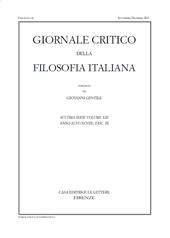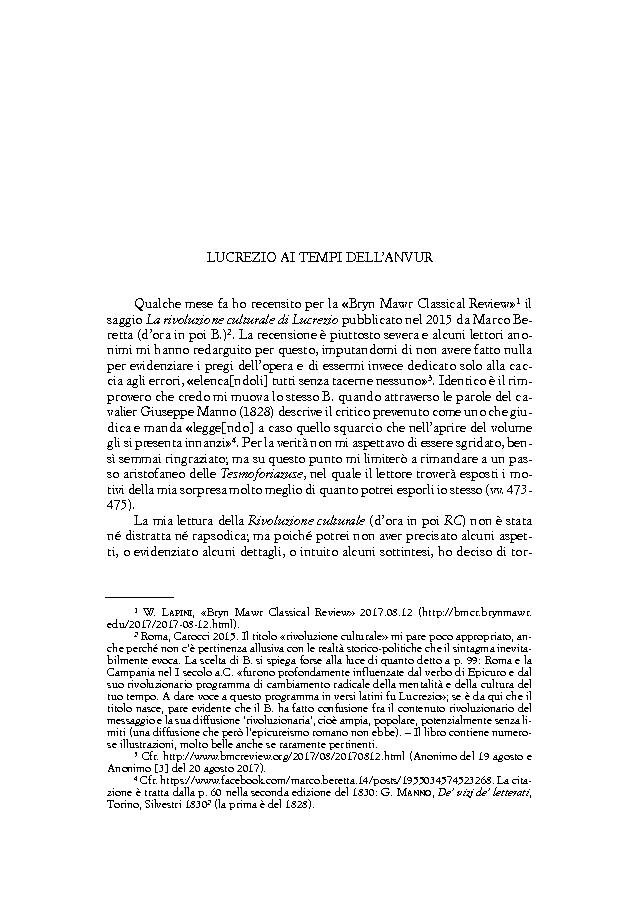Lucrezio ai tempi dell'Anvur
589-608 p.
Partendo dall'analisi del volume La rivoluzione culturale di Lucrezio di M. Beretta (Roma 2015), l'autore mette in evidenza alcune debolezze ricorrenti nella storiografia filosofica dei testi antichi, sia specialistica sia divulgativa, e ne conclude che alcune criticità di cui la scholarship soffre da sempre (scarsa attenzione per il testo, utilizzazione passiva di informazioni non verificate, riproposizione plurima di identici materiali e così via) si sono vistosamente aggravate negli ultimi tempi per via della sempre più spietata finalizzazione concorsuale della produzione scientifica; fenomeno a cui sono tutt'altro che estranei i criteri di valutazione della ricerca introdotti o sistematizzati negli scorsi quindici-venti anni in Italia: VQR, peer review, ranking delle riviste, etc. [Testo dell'editore].
Moving from the analysis of M. Beretta's La rivoluzione culturale di Lucrezio (Roma 2015), the author emphasizes some recurrent flaws in the philosophical historiography on classical texts, both scientific and for a wider audience. He points out some problems which are long since affecting scholarship, such as a scanty attention to the text, a compliant use of unverified information, and (from an academic standpoint) the habit to expand one's bibliography with multiple versions of the same material. All these bad practices have been constantly increasing over the last years due to the established link between the scientific writing and the Academia promotion procedures. The inflation of this phenomenon is not unrelated to the quantitative criteria applied to the research evaluation and control systems adopted by the Italian government during these last twenty years; among them, one may count the VQR, the journal ranking, the peer-review practice and so on. [Publisher's text].
-
Artikel aus derselben Ausgabe (einzeln erhältlich)
-
Informationen
DOI: 10.1400/272566
ISSN: 2284-1474



